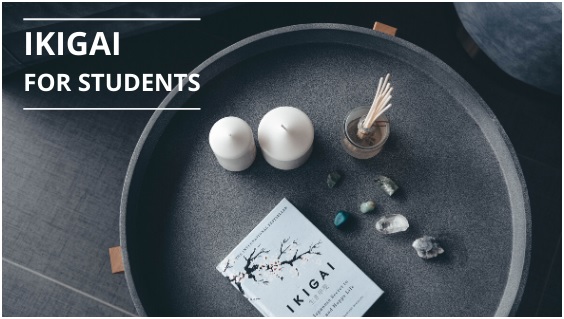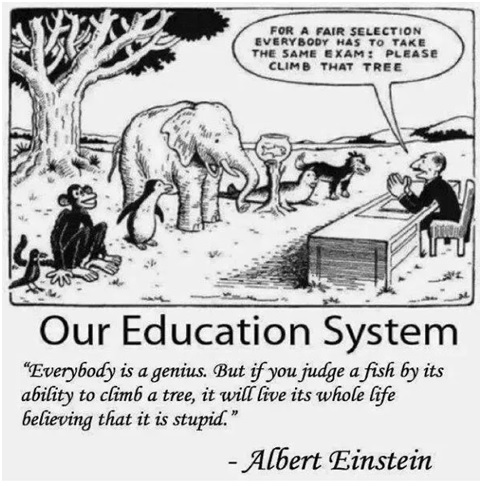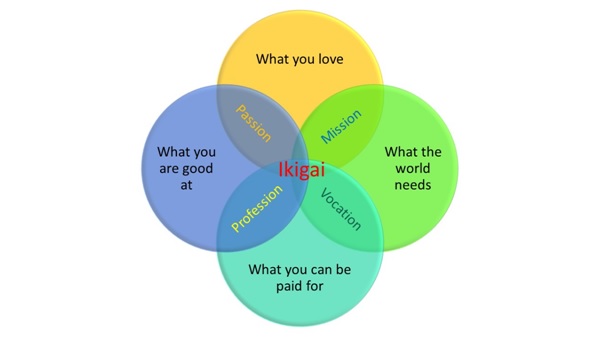
I saw this advertisement one day on Naukri.com, which I thought was quite quirky as it depicts the morale of an unhappy professional and demonstrates the struggle to go to office every day.

And on the same day, I bumped into a discussion thread in Quora here and here where students were talking about “What do Indian students hate the most?”
Both these things made me ponder over, Isn’t it important to be aware of the person one wants to be? Shouldn’t we be what we choose (and not forced) to become. What is it that will make life (and work) worth living? With my own experience I have learnt that being focussed, informed, and aware of what I want to do, focussing on my strengths and likes has imparted me the courage to face failures and made me more responsible of my own decisions.
Going back to the discussion on Quora: The most commonly resentful things discussed in the thread included:
- Forced to study a particular subject/stream (probably because of parents/peer/teachers pressure)
- Overburdened with school work
- Forced to choose a career that they don’t want to and end up being frustrated.
I read the students saying, lectures are boring and attending them has been made mandatory where one is prohibited from talking, eating and surfing the internet!! They further say that they are forced to sit in mindless lecture and do nothing!!

You will agree with me when I say that growing up is fun, exciting, with new friends, campus life, etc. Ask any adult about their school/college time, the unanimous reaction is to fondly recall them as the best days of their lives. It’s intriguing, how can the days, which one detests in the present, are cherished so warmly when viewing through the prism of time.
Ikigai
The Japanese secret to a long and happy life. Ikigai isn’t just another guide on ‘how to be happy’. The ultimate goal of Ikigai is not happiness – it is about having a life worthwhile, fulfilled, and with no regrets. Practising Ikigai helps one discover the life’s purpose that provides meaning to existence. The aim is to discover things you’re good at and that give you pleasure while doing. I have been wondering how the tools that Ikigai offers can support students’ study skills and help them achieve their academic goals.

As you can observe from the picture, there are four overlapping sections of Ikigai that will help you discover or rather uncover your:
- Mission
- Passion
- Vocation and
- Profession
To use this tool, define:
What is it that you love to do?
What is that you enjoy doing?
In the book they call this ‘the flow state’ – a blissful state where you’re content with everything around you and are focused on a task that you enjoy doing.
Being a student, it’s easy to feel weighed down by assignments and school work. However, a parallel pursuit of something you enjoy can help you come one step closer to a balanced life. That’s why it is important to keep aside everyday a time for something you love doing – maybe a hobby.
What is that the world needs?
Try to see the bigger picture and identify how you can be a part of the jigsaw puzzle. By doing that you will know where you are needed.
By doing community work, maybe offering service or by volunteering. Aligning your skills with real-world needs will make you feel good about yourself. Another step in achieving Ikigai.
What can pay you?
Remember, earning money is important too. It is something that will keep your worries at rest. A passionate pursuit of one’s goals that also contributes towards financial stability and independence is often the best prescription for a happy, fulfilling life.
What is that you are good at?
Identify your skills, your talent.
Talent – not necessarily that you are born with but that you get better at with your diligence, dedication, and discipline.
Once you have answers to all the above questions, you have found your Ikigai. There is passion inside each one of us, a unique talent that confers meaning to our days and drives us to share the best of ourselves until the very end. If you don’t know your Ikigai yet, Viktor Frankl observes, your mission is to discover it. Even if you don’t stick to it religiously, it helps you chart your future and keep your aspirations on track because it tells you where you are in life and what you need to work on by seeking answers to the questions you have so far.